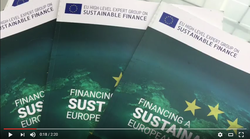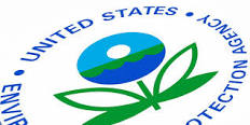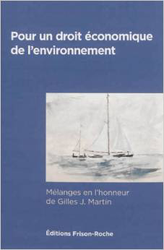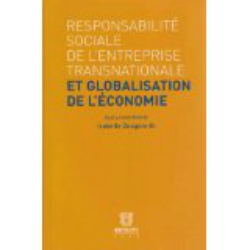Sectors
June 28, 2019
Breaking news

It is often observed, even theorized, even advised and touted, that Compliance is a mechanism by which public authorities internalize political (eg environmental) concerns in big companies, which accept them, in Ex Ante, because they are rather in agreement with these "monumental goals" (eg saving the planet) and that this shared virtue is beneficial to their reputation. It is observed that this could be the most successful way in new configurations, such as digital.
But, and the Compliance Mechanism has often been brought closer to the contractual mechanism, this is only relevant if both parties are willing to do so. This is technically true, for example for the Deferred Prosecution, which requires explicit consent. This is true in a more general sense that the company wants to choose itself how to structure its organization to achieve the goals politically pursued by the State. Conversely, the compliance mechanisms work if the State is willing to admit the economic logic of the global private players and / or, if there are possible breaches, not to pursue its investigations and close the file it has opened, at a price more or less high.
But just say No.
As in contractual matters, the first freedom is negative and depends on the ability to say No.
The State can do it. But the company can do it too.
And Daimler just said No.
___
Publicly, including through an article in the Wall Street Journal of June 28, 2019.
The company sets out in a warning to the market that it is the object of a requirement on the part of the German Motor Authority (Kraftfahrt-Bundesamt) of an allegation of fraud, by the installation of a software, aimed at misleading instruments for measuring emissions of greenhouse gases on cars using diesel.
It is therefore an environmental compliance mechanism that would have been intentionally countered.
On this allegation, the Regulator both warns the company of what it considers to be a fact, ie compliance fraud, and attaches it to an immediate measure, namely the removal of the circulation of 42,000 vehicles sold or proposed by Daimler with such a device.
And the firm answers : "No".
_____
Which is probably only beginning, since a No ends the dialogue of Ex Ante to project in the Ex Post sanction procedures, calls 6 observations:
- 1. No doubt Daimler, a German car manufacturing company, has it in mind in this allegation of fraud calculating pollution of its diesel cars what happened to his competitor Volkswagen: namely a multi-billion dollar fine, for lack of compliance in a similar hypothesis (so-called dieselgate). The strategic choice that is then made depends on education through the experience of the company, which benefits as such from a previous case that has had a very significant cost. Thus educated, the question is to measure the risk taken to refuse any cooperation, when the company can anticipate that it will still result in such an amount ....
- 2. In addition, we find the difficulty of the distinction of Ex Ante and Ex Post. Indeed, saying No will involve for the company a cost of confrontation with the Regulator, then the peripheral jurisdictions or review courts. But in Germany, the Government itself, concerning a bank threatened with compliance proceedings and almost summoned by the US regulator to pay "of its own free will" a transactional fine, felt that this was not normal, because it must be the judges who punish, after a contradictory procedure with due process and after established facts.
- 3. However, this is only an allegation, of probable assertions, of what legally allows to continue, but which does not allow to condemn. The confusion between the burden of proof, which presupposes the obligation to prove the facts before being able to sanction, and the burden of the allegation, which only supposes to articulate plausibility before being able to prosecute, is very damaging, particularly if we are committed to the principles of Repressive Law, such as the presumption of innocence and the due process. This distinction between these two probationary charges is at the heart of the probatory system in the Compliance Law. Because Compliance Law always looks for more efficiency, tends to go from the first to the second, to give the Regulator more power, since businesses are so powerful ....
- 4. But the first question then arises: what is the nature no so much of the future measure to be feared, namely a sanction that could be taken later, against Daimler, if the breach is proven, or which will not be applied to the firm if the breach is not established; but what is the nature of the measure immediately taken, namely the return of 42,000 vehicles?
- This may seem like an Ex Ante measurement. Indeed, the Compliance assumes non-polluting cars. The Regulator may have indications that these cars are polluting and that the manufacturer has not made the necessary arrangements for them to be less polluting (Compliance) or even organized so that this failure is not detected ( Compliance fraud).
- This allegation suggests that there is a risk that thiese cars will polluting. They must immediately be removed from circulation for the quality of the environment. Here and now. The question of sanctions will arise after that, having its procedural apparatus of guarantees for the company that will be pursued. But see the situation on the side of the company: having to withdraw 42,000 vehicles from the market is a great damage and what is often called in Repressive Law a "security measure" taken while the evidence is not yet met could deserve a requalification in sanction. Jurisprudence is both abundant and nuanced on this issue of qualification.
- 5. So to withdraw these cars, it is for the company to admit that it is guilty, to increase itself the punishment. And if at this game, taken from the "cost-benefit", as much for the company immediately assert to the market that this requirement of Regulation is unfounded in Law, that the alleged facts are not exacts, and that all this the judges will decide. It is sure at all whether these statements by the company are true or false, but before a Tribunal no one thinks they are true prima facie, they are only allegations.
- And before a Court, a Regulator appears to have to bear a burden of proof in so far as he has to defend the order he has issued, to prove the breach which he asserts exists, which justifies the exercise he made of his powers. The fact that he exercises his power for the general interest and impartially does not diminish this burden of proof.
- 6. By saying "No", Daimler wants to recover this classic Law, often set aside by Compliance Law, classic Law based on burden of proof, means of proof, and prohibition of punitive measures - except imminent and future imminente and very serious damages - before 'behavior could be sanctioned following a sanction procedure.
- Admittedly, one would be tempted to make an analogy with the current situation of Boeing whose aircraft are grounded by the Regulator in that he considers that they do not meet the conditions of safety, which the aircraft manufacturer denies , Ex Ante measurement that resembles the retraction measure of the market that constitutes the recall request of cars here operated.
- But the analogy does not work on two points. Firstly, flight activity is a regulated activity that can only be exercised with the Ex Ante authorization of several Regulators, which is not the case for offering to sell cars or to drive with. This is where Regulatory Law and Compliance Law, which often come together, here stand out.Secundly, the very possibility that planes of which it is not excluded that they are not sure is enough, as a precaution, to prohibit their shift. Here (about the cars and the measure of the pollution by them), it is not the safety of the person that is at stake, and probably not even the overall goal of the environment, but the fraud with respect to the obligation to obey Compliance. Why force the withdrawal of 42,000 vehicles? If not to punish? In an exemplary way, to remind in advance and all that it costs not to obey the Compliance? And there, the company says: "I want a judge".
______
Feb. 4, 2018
Translated Summaries : Isolated Articles


March 27, 2015
Sectorial Analysis

The cost issue of regulation is a recurring issue.
One can complain specifically, when companies are protesting about the "cost of regulation" or when the topic is taken as an object of study, through the cost / benefit calculation.
A practical question of importance is whether there is a "legal question" or not.
The "juridicity" of a question is defined by the fact that discussing about this question has an effect on the outcome of a case before a judge. This concrete definition, leaving the judge's power, binding nature of the rule (here the balance between cost and benefit) the effectiveness of its decision before the judge, its consideration by him in the decision he makes, has been proposed in France by Carbonnier. It is opposed to a definition of Law by the source, the author of the rule, which identifies law for example through Parliament Acts, because the text is adopted by the legislator, listed source of law.
The first definition, more sociological, more flexible, giving the spotlight on judge better corresponds to a legal system which gives more room for ex post and for the judge. It is logical that we find more demonstrations of this conception in the common law systems.
However, the issue of cost / benefit is being debated before the Supreme Court of the United States, about the latest environmental regulations, adopted by the Environment Protection Agency (EPA). It is a question of law. It is under the empire of the judge.
For it is in this light that President Barack Obama in November 2014 asked a very costly regulation, and it was under his leadership that the Environmental Protection Agency has developed texts. Indeed, pollution of certain plants are the cause of asthma and laid in public health imperative to fight a regulation that results in a direct cost on firms. Indeed, some plants pollution is the cause of asthma and President Obama has asked public health imperative to combat by a regulation that results in a direct cost on the industry. The regulations adopted in 2012 they cost a $ 9 million, some claiming that future ones could result in billions of costs directly related to business The President emphasized by stating that the health of children was priceless.
By challenging those of 2012 before the Supreme Court, in the case Michigan v. EPA, this is the other texts that conservative states and companies have in mind because it is the principle that is posed: : does A regulator have the right to take regulations very "expensive" when the advantage, however legitimate it is, is small-scale in terms of costs? The Supreme Court, having chosen to handle the case, listened to March 25, 2015, the arguments of each other and discussed the case.
The question is the integration or not into the constitutional notion of "necessity of the law" of the "cost / benefit" calculation. This is a crucial point because the concept of "necessity of the law" is a common notion to the constitutions of many countries.
However, not only the so-called judges "conservatives" as Justice Antonio Scalia, took position felt it was crazy not "consider" the cost of new regulations from the expected health benefits, but also Justice Stephen Breyer called "progressive," said "irrational" the environmental regulator has not taken in consideration such an imbalance between cost and benefit.
It is true that Justice Breyer was formerly professor of competition law at Harvard.
Judgment will be given in June.

Feb. 17, 2015
Translated Summaries : 05. Energie

In regulatory law, municipalities are very important, as consumers but also as issuers standards. They can do this through contracts but also by unilateral standards such orders.
This power of municipalities is coming to a halt by the decision taken 17 February 2015 by the Supreme Court of the State of Ohio,, State of Ohio ex rel. Jack Morrison Jr., Law Director for City of Munroe Falls, Ohio v. Beck Energy Corp.
Indeed, a municipal law had made provisions for imposing rules on location, drilling and well operations and gas. These provisions were contrary to the law of the State of Ohio.
In its judgment of 17 February 2015, the state Supreme Court considers that this is enough to make the first non-compliant text of the Constitution because it is not possible for a local authority to exercise normative power by contradicting a state standard.
The stakes are certainly legal and lies in the implementation of the hierarchy of norms. But it is also political: in energy, due to the power of the operators, which is most likely not to be captured by the sector? The political power of the state or the political power of municipalities?
As suggested by one of the judges, must be taken into consideration which of the two powers depends most operators in the financing of campaigns.
Factual and determinant consideration, specific element of the US, an element which Kelsen couldn't think .....
Feb. 12, 2015
Events

This conference is managed by Professor Julien Chaisse.
It is organized by the Centre for Financial Regulation and Economic Development, Faculty of Law – The Chinese University of Hong Kong.
This conference aims to better understand the legal mechanisms for international regulatory mechanisms of water, especially in view of climate change, to articulate the role of states and private investment contracts, to understand the legal nature of water as a "resource" but also as "human right" especially in view of the determination of its price, and to mesure the legal consequences of globalization on the matter.
Dec. 15, 2014
Breaking news

The European Directive of 22 October 2014 ot the European Parliament and of the Council as regard disclosure of non-financial and diversity information by certain large undertaking and groupe comes from afar.
Some present it as a step of an "irrestible rises of Corporate Social Responsabilité. This text would be a a "step forward" and a "strong signal".
It is true the Directive of the European Parliament and the Council follows a consultation conducted for several years by the European Commission on the subject of Social Responsibility. Whatever might have said the "stakeholders", the Directive contains the same lines tham the European Commission Communication of 13 April 2011, adopted on 25 October 2011 on the topic.
It is difficult today to oppose "Hard Law" and "Soft Law": Law hardens gradually. Thus, from the "communication", we went to the "resolutions", whose status remains uncertain, both a communication firmer but less binding than a law, since resolution is only for its author ... Thus Parliament in its resolutions of 6 February 2013 'resolved' to design an "inclusive" vision of the corporate action, to dance together profitability and social justice. To get by, it must suffice to say that the Social Responsibility Company is "multidimensional" ... Guidelines of the European Commission (non-binding) will explicit. Wait and see.
Following a series of obligations on information that companies must make available "to the public and authorities." Thus, companies must do the work instead of public authorities themselves. The provisions relating to non-financial information are mandatory and standardized. They are particularly demanding on the environment.
But when the text provides more substantial obligations, such as making the activity business less polluting, the Directive simply ask the member states to encourage companies to adopt "best practices" in the field. The market itself is incitative, in particular for making boards of large corporations more diverses. Because the principle is the belief that "investor access to non-financial information is a step towards achieving the goal of effective .... Europe in the use of resources," in a regulatory context of a "smart, sustainable and inclusive" growth".
Dec. 9, 2014
Breaking news

The administration of President Barack Obama issued November 26, 2014 a draft of 25 November 2014, coming from the Environmental Protection Agency (EPA) and subject to contributions to regulate the emission of greenhouse gases.
Companies are protesting because this will increase the cost of regulation. We are now witnessing a clash between supporters of the economic strength of the country and the promoters of the environment.
The President's rationale is this: that environmental regulation is justified because it will prevent many diseases and even death from respiratory failure. However, social programs and Obamacare are the major challenges of his presidency.
Therefore, the discussion is about the relationship between "regulation" and "sector": if the Regulation is related simply to the environment, then the argument of additional financial regulation advanced by firms is relevant.
Indeed, the principle of proportionality being key in regulatory techniques, there is disproportionality between the means and the goal.
Dec. 1, 2014
Thesaurus : Doctrine
Complete reference : Malecki, C., Publication de la directive RSE ou comment faire confiance à la gouvernance d'entreprise durable, Bull. Joly Société, 1st Dec. 2014, p.732 s.
Oct. 22, 2014
Thesaurus : 02. European Union
Sept. 17, 2013
Thesaurus : Doctrine

Sept. 2, 2013
Thesaurus : Doctrine
Updated: July 12, 2012 (Initial publication: July 12, 2012)
Thesaurus : Doctrine

Updated: Nov. 8, 2011 (Initial publication: Nov. 8, 2011)
Thesaurus : Doctrine
Updated: Jan. 12, 2011 (Initial publication: Jan. 10, 2011)
Sectorial Analysis
Main information
On December 10, 2010, the Commission de Régulation de l’Energie (CRE – French Commission for Energy Regulation) and the Autorité des marches financiers (French Securities Regulator – the AMF) entered into a memorandum of understanding (the MoU). Cooperation between these two sector based regulators is, for the most part, set against the background of, and aims at, a better (or, rather, burgeoning) regulation of the market for CO2 emission allowances and is grounded in the following principles: - both regulators undertake to transmit information necessary to fulfilling each other’s respective expanded legal mandate, i.e.: o protecting investments made in CO2 emission allowances (e.g. by detecting and punishing market abuses, i.e. insider trading, market manipulations, dissemination of false information) for the AMF and; o overseeing transactions made by market participants on the spot and derivatives markets for CO2 emission allowances to make sure that such transactions are in line with transactions made on the markets for electricity and natural gas for the CRE; - such mutual information is to notably take the form of regular bilateral meetings at various levels and mutual information may now cover data that the AMF had to keep confidential due to strict legal privilege restrictions applicable to its officers.
Updated: June 8, 2010 (Initial publication: May 18, 2010)
Sectorial Analysis

Main information
A series of decisions handed down by the European Court of Justice on March 9, 2010 reduces the burden of proof for environmental damages, in order to facilitate the application of the 'polluter pays' principle, and provides national regulatory authorities broad powers in enforcing environmental liability.
Updated: June 8, 2010 (Initial publication: Feb. 11, 2010)
Sectorial Analysis

Main information
The {Conseil Constitutionnel} (French Constitutional Council) approves the principle of a carbon tax scheme, but obliges the Government to review its scope.
May 4, 2010
Thesaurus : Doctrine

Complete reference: Daugareilh, I (ed.), Responsabilité sociale de l'entreprise transnationale et globalisation de l'économie, Bruylant, Bruxelles, 2010, 818 p.
Read the coverback (in French)
Updated: April 29, 2010 (Initial publication: Dec. 24, 2009)
Sectorial Analysis

Main information
Two judgments of the General Court of the ECJ challenge the greenhouse gas emissions allowances trading system within the European market.
Updated: April 12, 2010 (Initial publication: April 2, 2010)
Sectorial Analysis

Main information
The Conseil économique, social et environmental (CESE - French Economic, Social, and Environmental Council) criticises the mechanism of the “Carbon Tax” as conceived by the Parliament, and which has currently been abandoned.
Dec. 1, 2006
Thesaurus : Doctrine
Complete reference : Trébulle, F.-G., Stakeholders Theory et droit des sociétés, Bull. Joly Sociétés, 1st Dec. 2006, p.1337 . ; 1st Jan. 2007, p.1 et s.
June 10, 2003
Thesaurus : Doctrine
Complete Reference : Trébulle, François-Guy, L'environnement en droit des affaires, in Mélanges en l'honneur de Yves Guyon, Aspects actuels du droit des affaires, Paris, Dalloz, p.1035-1059.

